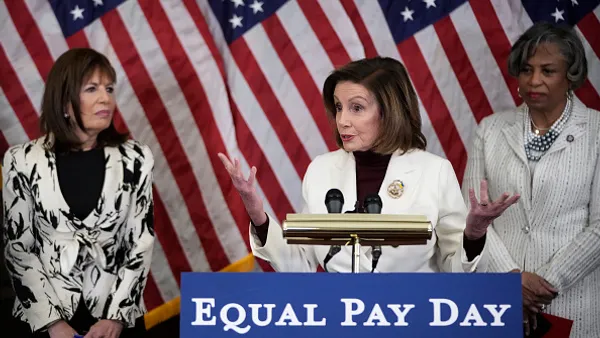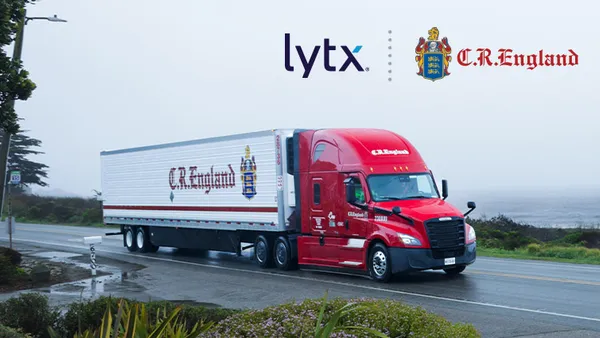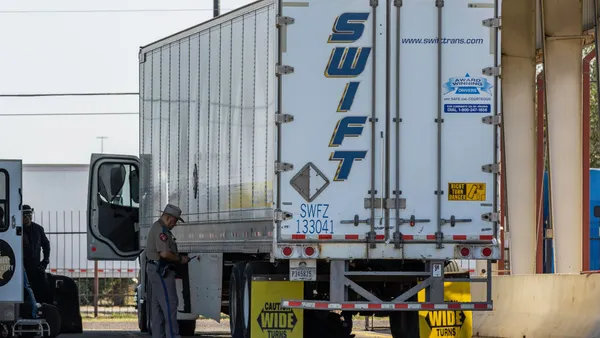Dive Brief:
- Proposed legislation in Congress would create tax credits for truck drivers in an effort to retain current drivers and entice new recruits amid widespread labor challenges in the industry.
- U.S. Reps. Mike Gallagher (R-Wis.) and Abigail Spanberger (D-Va.) introduced the bill this month to create two-year refundable tax credits of up to $7,500 for qualified truck drivers. It would also create two-year credits of up to $10,000 for new truck drivers or for those enrolled in registered trucking apprenticeships.
- The measure, called the Strengthening Supply Chains Through Truck Driver Incentives Act, has been assigned to the House Ways and Means Committee and has not yet been scheduled for a vote as of Tuesday afternoon.
Dive Insight:
Lawmakers have targeted truck driver incentives and apprenticeships as proposed solutions to ongoing challenges recruiting and retaining drivers. President Joe Biden credited apprenticeships for some of the recent gains in hiring.
The American Trucking Associations and American Loggers Council endorsed the driver tax credit bill, which Chris Spear, ATA president and CEO, said would attract drivers into the field by "providing substantial tax credits to reduce their federal tax liabilities."
"This bipartisan bill would make a meaningful difference in the lives of new truckers, further elevating the profession as one of the few available in today's job market that provides a stable career path to the middle class without the costly burden of a four-year college degree," Spear said.
The proposal would create two refundable tax credits — one of up to $10,000 for new drivers or apprentices, and one of up to $7,500 for drivers with a valid Class A commercial drivers license who drive at least 1,900 hours in a year. Both credits would last through 2023.
New truck drivers would be eligible, even if they didn't drive a truck in the previous year, according to the text of the bill. (They still could receive a portion of the credit, providing that they drove at least 40 hours a week upon starting to drive.)
The incentives would put more money in drivers' pockets in a worker's market that is already improving salaries and other benefits for truck drivers. Walmart is offering starting driver salaries as high as $110,000 for the first year, and other companies have reported increased spending on labor.
Unlocking the industry's labor capacity will require a "multifaceted approach that combines industry initiative with good public policy such as this legislation," Spear said.
Gallagher touted the bill as a remedy to a "massive workforce shortage that's disrupting supply chains and leaving store shelves empty." Spanberger said it would "encourage more young people to hop in the driver's seat, reduce headaches for trucking businesses, and make sure experienced drivers are rewarded for their hard work."
Lewie Pugh, executive vice president of the Owner-Operator Independent Drivers Association, called the proposal a two-year "Band-Aid" that wouldn't adequately address underlying issues plaguing the industry.
OOIDA instead supports the Guaranteeing Overtime for Truckers Act, a separate bill introduced by Andy Levin (D-Mich.). It proposes to no longer exempt truckers from the Fair Labor Standards Act's requirement of time-and-a-half pay for overtime after a 40-hour workweek. The exemption, intended to prevent drivers from working too many hours, instead is preventing them from being properly compensated for the 50 to 70 hours they frequently work in a week, OOIDA says.
"What we need to be focusing on are the real problems: The parking shortage issue, the pay shortage of no overtime, drivers being detained for hours upon hours with no compensation," Pugh told Transport Dive. "These are real problems in the industry that are going to continue to be here even after this $7,500 goes away."













